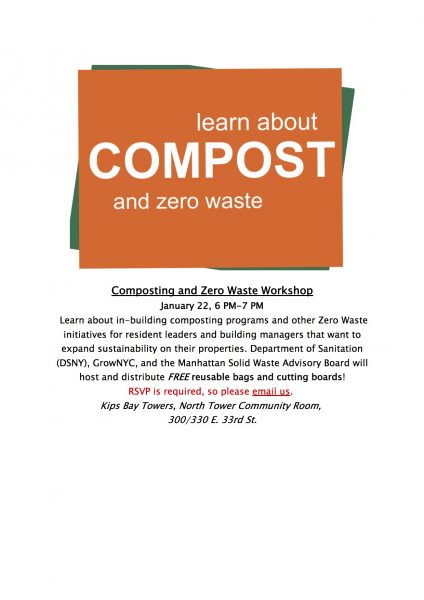In the front of the BRC Audubon is planning to build a “Demonstration Garden” to show us how we might entice our birds and bees and important insects to remain in the entire park.
Come and let them know what you would like to see!
A few photos from yesterday’s Audubon Outreach Meeting. And a visit from a concerned Park denizen.
Thank you to Audubon NY Richard Santagelo, Amy Simmons, and Emily Tyrer for volunteering her time to educate us all. And for bringing us information to take with us. Thank you to Kim Fong of the BRC for welcoming this resource.
Very appreciative of Parks workers, local birders, Seniors at the BRC, interns, Bob Humber and all our volunteer park caregivers for their input.
and Ceci Cela Patisserie coffee and treats!!
We’ll hold another meeting for those who couldn’t make this one. Stay tuned.
And pre-visit from Tenement Museum and New Forsyth Conservancy Gardener Jason:
Emily’s beautiful survey displays (English version will be available for comment at the BRC – see Bob Humber). Others in Chinese are on their way:
And last… a visit from a Sharp-Shinned Hawk hunting…in M’Finda Garden  (photo courtesy Daniel Tainow)
(photo courtesy Daniel Tainow)
From the MTA:
Good afternoon all,
The following is an update on the work taking place this week at the Forsyth worksite.
Weekly Look Ahead – Week of 1/27/2020 – 2/2/2020
Above schedule is to our best knowledge as of now and is subject to change. ConEd schedule is based on the information communicated to EEC/MTA by ConEd. ConEd controls its schedule. Changes in Con Edison schedule will impact EE Cruz’s Scheduled Work.
“The manager of the Harry and Jeanette Weinberg Building dropped off space heaters for residents on Tuesday, but when families plugged them in, the electricity went out.
Residents say the water has been cold since Jan. 9 — almost two weeks. That’s when the heat went out too.
“Horrible, it’s just very bad, it’s just something you would not want to experience,” resident Francesca Piper said. “It’s to a point where you have a mental breakdown, you can’t function right.”
Most of the tenants in the building are deaf.
Neighbors stood outside Tuesday night, signing with each other, to discuss how even mundane tasks like showering have become impossible.”
Council Member Chin (from Twitter): “We’ve been working with residents of 174 & 184 Forsyth get back heat and hot water. Not only has the management company been dragging its feet on this, we’ve had to call them out to provide special fire alarms for the buildings’ majority deaf residents”
“One resident said her smoke alarms didn’t work even after putting out a kitchen fire. For a child to say, “We’re getting used to it since it’s been so long” shows how people with disabilities are treated as an afterthought. Building ownership’s neglect is life-threatening.”
From Neighbors to Save Rivington House:
“The Public Health and Health Planning Council (subcommittee) PHHPC yesterday approved the Certificate of Need (CON) application for a Behavioral Health Facility run by Mount Sinai /Beth Israel. It will go to the full PHHPC committee for almost certain passage. The PHHPC has two consumer advocate positions. One was only recently filled. Many are industry insiders. Some, we felt, understood the difficulties low-income communities are placed in when there are no knowledgeable experts to consult with.
Neighbors to Save Rivington House wrote this response and spoke at the hearing yesterday. This was cobbled together to express some of what this struggle has meant. We did it without an without an independent expert on the behavioral health CON process. The Department of Health never showed up to provide guidance at either local Forums organized by local elected representatives and advocates opposed to the downsizing of Mount Sinai /Beth Israel and Neighbors to Save Rivington House.
Rivington House staff and residents were our partners, colleagues, friends.
We lost a state of the art infectious disease skilled nursing care center that NYS taxpayers funded. All the equipment was destroyed by Slate Property to make way for luxury housing (that thanks to us, never got built). We are experiencing infectious epidemics with little in the way of sites with knowledgeable staffing – the coronavirus just the latest but certainly not the last.
The question of the Allure Group and the Attorney General’s Settlement, given their history here and elsewhere, their competence and trustworthiness to provide decent nursing home care are still to be worked out.”
SDR Community Coalition:
Mount Sinai will be Sara Roosevelt Park Community neighbors. They have offered to come to meeting to listen and answer questions. We will welcome them in and expect them to join the ethos of our community.
From: The Atlantic
“…Developers bet huge on foreign plutocrats—Russian oligarchs, Chinese moguls, Saudi royalty—looking to buy second (or seventh) homes.
But the Chinese economy slowed, while declining oil prices dampened the demand for pieds-à-terre among Russian and Middle Eastern zillionaires.. .the Treasury Department cracked down on attempts to launder money through fancy real estate…”
Meanwhile across from Sara Roosevelt Park…this from Bowery Boogie:
Elie
“Owner-developer KD Sagamore, which scooped up 199 and 201 Chrystie over the last several years for a combined $20 million, filed for re-development back in December 2017. The plans included merging both parcels into one tax lot, according to Department of Buildings filings”
We could be this:
“And so begins the long road back for the Stanton Storehouse. Decades displaced from community hands, the facility partially reverts to neighborhood use this month with the debut of public bathrooms…
…Thanks to an allocation of $1 million in city funding sponsored by Councilwoman Margaret Chin and Manhattan Borough President Gale Brewer in 2017..”
Read more here.
Our asks:
Return of the Stanton StoreHouse to active community use creating an engaging and safe hub for all who use the park.
1) Programming coordinated by University Settlement in partnership with the Stanton Bldg Task Force, community partners and residents
2) Indoors and outdoor activation includes programs in park stewardship, fitness, recreation, ‘green culture’ and education
3) Highlights: Daytime workshops, after-school youth programs, evening community meetings and more. Flexibly equipped with storage for gardening and recreational equipment, emergency communications…
“A Frankenstein material” is teeming with — and ultimately made by — photosynthetic microbes. And it can reproduce.”
“A six-mile-long barrier would help protect the city from floodwaters during fierce storms like Sandy, but critics say rising seas make the option inadequate.”
email – district2@council.nyc.gov
